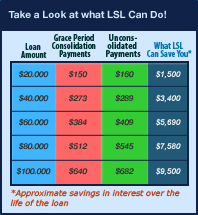 |
The U.S. House of Representatives' Subcommittee on Higher Education, Lifelong Learning, and Competitiveness met last Thursday to listen to recommendations on new policy options for postsecondary education. Recommendations specifically focused on ways to make college more accessible and more affordable.
In the first in a series of hearings, "The State of Higher Education: How Students Access and Finance a College Education," higher-education experts urged Congress to continue to increase funding for need-based aid to help extend opportunities for college admission to low-income students and minorities. According to the House of Representatives' Committee on Education and Labor, the experts also suggested reorganizing the Higher Education Act, the main law that governs the nation's higher-education system.
The panel of experts, which included James Merisotis of the Institute for Higher Education Policy, David Breneman of the UVA Curry School of Education, Ross Wiener of the Education Trust, and Don Soifer of the Lexington Institute, warned that if college accessibility was not increased, America would lose its highly educated and skilled workforce, which is critical to the nation remaining a global economic leader.
"There is a growing concern that, as a nation, we are losing our competitive edge. We know from experience that investing in higher education is one of our primary tools for sharpening that competitive edge," said Subcommittee Chairman Rep. Ruben Hinojosa (D-TX).
Ross Wiener, Vice President for Program and Policy at the Education Trust, told the subcommittee that declining college graduation rates could result in America facing a serious shortage of qualified workers in the next few years.
"Projections based on data from the Bureau of Labor Statistics indicate that, if current trends are not changed, then the U.S. will face a shortfall of more than 3 million workers with bachelor's degrees-not in 20 or 30 years but in five years, by 2012," Wiener warned.
It could be that the decrease in graduation rates is a direct result of skyrocketing college costs, as these high costs have become a large concern for American families and college hopefuls. According to the House of Representatives' Committee on Education and Labor, since 2001, tuition and fees at four-year public colleges and universities have risen by 41%-after adjustments have been made to account for inflation. It is said that the average student graduates with $17,500 in federal student loan debt, and as many as 200,000 prospective students have delayed or forgone attending college due to financial barriers in recent years, according to estimates by the Department of Education.
The panel recommended that in order to make college more affordable and accessible for qualified students, the government needs to simplify the federal financial aid application process, base loan repayment schedules on family income, and work with states to enhance need-based aid and cost containment. Most experts approved of the steps that Congress has already taken to cut interest rates on federal student loans in half and boost the Pell Grant scholarship for students most in need by $260, from $4,050 to $4,310.
|
|
 |














 Law School Loans' borrower benefits program enables you to reduce your interest rate by an additional 0.25% for using our automatic debit program.
Law School Loans' borrower benefits program enables you to reduce your interest rate by an additional 0.25% for using our automatic debit program.
